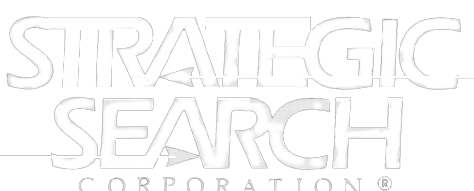Keyword research is one of the fundamentals of successful SEO (Search Engine Optimization) and SEM (Search Engine Marketing or Pay Per Click) campaigns. Proper keywords help web pages rank higher with search engines, which assists marketers in better attracting customers. Hiring companies can adopt these techniques to better recruit candidates for their staffing needs.
Choosing the right keywords is all about identifying whom your target audience is, what their expectations are in finding you and what words they will input into search engines to find you. It is not about what you think are the best keywords. Instead, it is about what your target audience will actually be using. Therefore, you need to penetrate the minds of the searcher to uncover what keywords they will likely choose in their process of finding you.
“Unfortunately, most people guess at what keywords they should be known for, which leads to them not being found,” says keyword expert Ron Jones, president of Symetri (http://www.symetri.com) during our recent interview. “Instead you should do some research to identify what key terms people may be using to find you and then design your content (e.g. help wanted ads) using those keywords. This will enhance your ability to make a connection between the searcher (e.g. job seeker) and yourself.”
There are many tools one can use to determine optimum keywords for your target audience. They include free tools such as Google Keyword Tool (https://adwords.google.com). They also include paid tools include WordStream (http://www.wordstream.com), Keyword Discovery (http://www.keyworddiscovery.com) and Wordtracker (http://www.wordtracker.com). “Most paid tools allow you to do some free searching. However, the $50 to 70 (you will spend for one month’s usage of Keyword Discovery) will be money well spent because it will also help you better qualify candidates. If I am looking for someone with a very specific background, I can perform some keyword research to identify the right keywords that are most relevant for that type of person. Then those job seekers who have that desired talent are more apt to uncover and approach my company. The rule-of-thumb is the more specific and relevant your job descriptions are using the proper keywords, the more likely it is that you will make a connection with the talent you seek. Also, using proper keywords will help you better filter out those who do not fit your requirements. One caution is there is no one keyword tool that does it all. Instead, I recommend using several tools together,” shares Mr. Jones.
The next question you may have is how often should you perform keyword research. Mr. Jones recommends once a year. However, if you have a major change in your industry (e.g. new product introduction) you should perform it more quickly. “The key is if you are in the R&D (research and development) phase, keyword research can also be a great tool for developing new product names. Then if you can integrate the results into your new product name, this can help you both: a) generate optimum new product names and b) help your customers to better find you per your new names, says Mr. Jones.
Finally, it is very important to apply keyword research to your recruiting campaigns in order to meet candidate expectations. “When someone uses any search engine, they start off with an expectation. If they then uncover an ad or search result, that represents their expectations, then they are likely to click on it. If they click on that destination (e.g. your blog or website), it is important that destination delivers on that expectation. Therefore, the final destination also has to be rich with the same keywords that began the process so that there is relevance from the beginning of the process to the end,” mentioned Mr. Jones.



